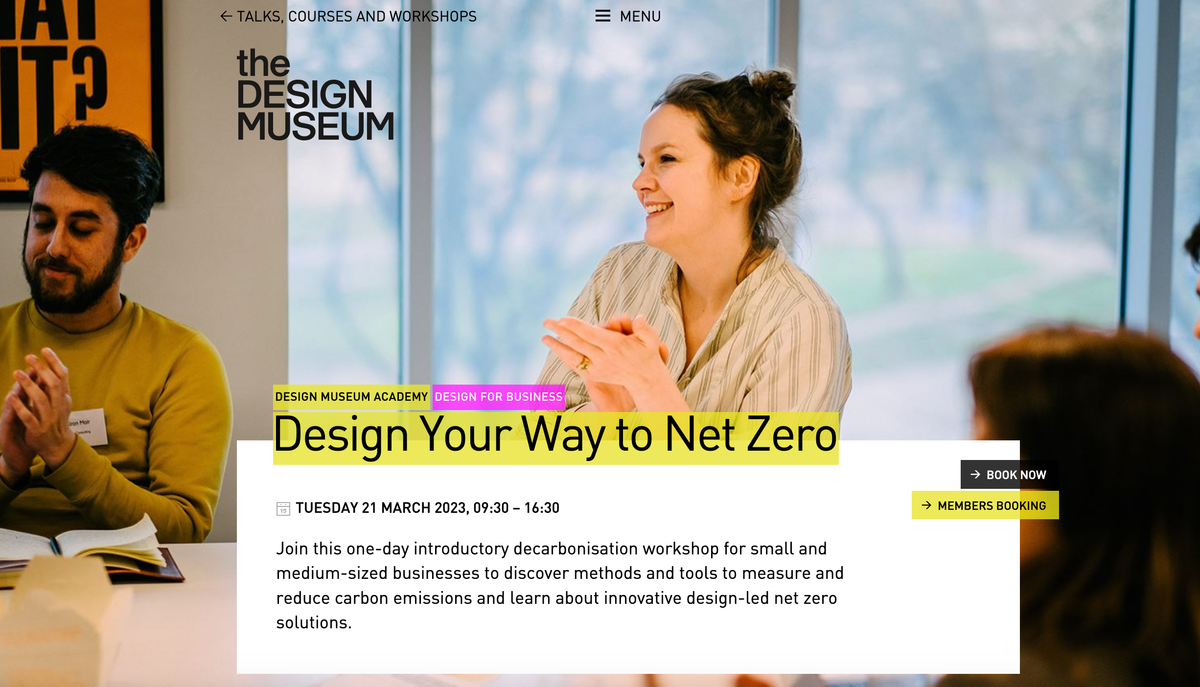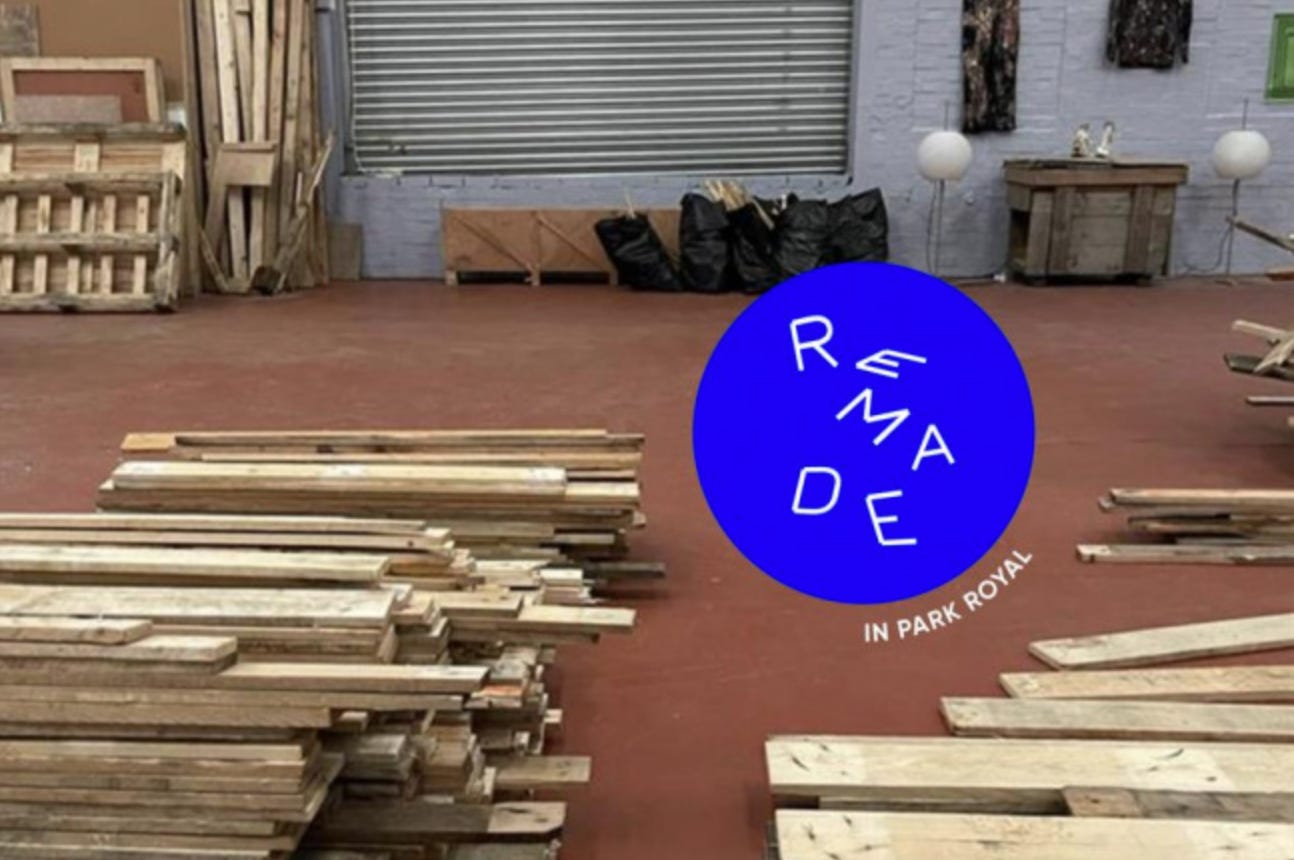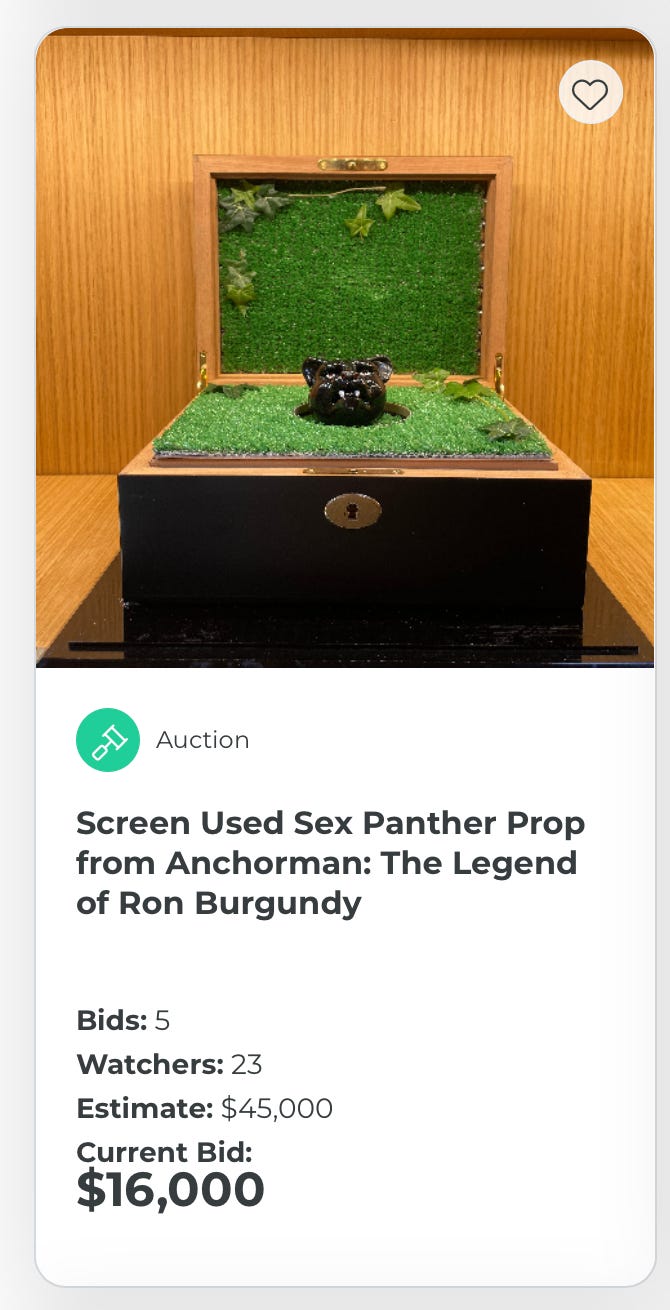
Design Your Way to Net Zero is a one-day introductory decarbonisation workshop on 21 March for small and medium-sized businesses facilitated by URGE’s Alexie Sommer at The Design Museum. The course teaches design-led methods and tools to measure and reduce carbon emissions. Attendees will discover design methods that support businesses to reduce their impact: how to use tools to calculate business carbon emissions: develop a carbon reduction action plan to implement day-to-day carbon reduction behaviour and learn about applying methods in practise and innovative net zero carbon solutions. Details here
A new report presented at the World Economic Forum meeting in Davos claims that “three ‘super-leverage points’ could trigger a cascade of tipping points for zero-carbon solutions in sectors covering 70% of global greenhouse gas emissions”. The report was compiled by an international team including Systemiq and the University of Exeter. The three super-leverage points are: mandates for the sale of electric vehicles, mandates requiring ‘green ammonia’ to be used in the manufacturing of agricultural fertilisers, and public procurement of plant-based proteins. “These changes could trigger a cascade of tipping points, leading to cheaper batteries to help solar and wind scale-up in the electricity sector, cheaper hydrogen opening up decarbonisation for the shipping and steel industries, and reduced pressure for deforestation,” the report claims. More here

Crowdfunding is underway for Re-Made in Park Royal, a new materials exchange hub in West London which “will connect artists and makers with waste and surplus materials from local industries, film studios and construction projects”. The hub will allow the local “artist and maker community to find materials for free or very cheaply, which would have otherwise been sent to landfill”. It will also “provide an opportunity to educate and inform local businesses, construction projects, school pupils/students, residents and other key stakeholders on the benefits of a circular economy approach to waste and innovation”. More here
How can designers be less reliant on plastic in their practice? asks Design Week. The title canvased opinion from various designers on how the industry can change its relationship with plastic, including Morrama founder and creative director Jo Barnard, and Pearlfisher London sustainability and materials lead Suzy Shelley. Read the piece here

And finally… in one of the less likely climate-related stories you may read today, Adam McKay, the director of Anchorman, is selling the prop bottle of Sex Panther cologne from the film (“it’s made with bits of real panther, so you know it’s good”) to raise funds for the Climate Emergency Fund. It’s one item from his personal collection being put up for sale to benefit the fund – other lots include a walk-on part in his next film and vintage autographed basketball cards. Story here

